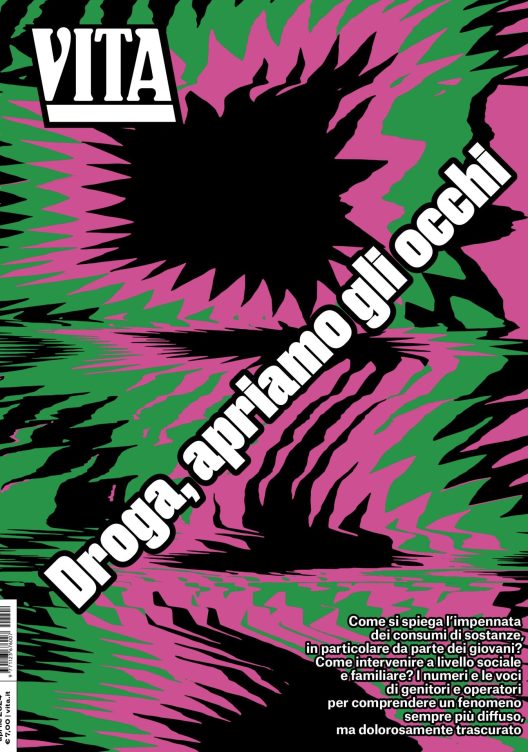Famiglia & Minori
EU: students from the East. Mobility or brains on the run?
More and more students are choosing to study abroad. A sign of integration but also a weakening of the societies they come from
Mobility is the word of the day. More and more, south-eastern European students are choosing to undertake their studies at western European universities. Over the past few years the make-up of the student population of European Universities, in particular Italian ones, has been rapidly evolving. Europe is becoming an open educational space for many young people, many of whom come from eastern and Balkan Europe. European study programmes such as Socrates-Erasmus, scholarships for foreigners and bi-and multi-lateral exchanges in universities world wide have had a radical effect on the student populations of the universities. In the academic world this has laid the foundations for a true inter-cultural society. The country with the highest number of foreign students overall is the United States; however it is European countries like Great Britain, France, Germany and Sweden who have the highest foreign student growth rate. Interestingly, a comparative study of the politics directed at foreign graduates in 2006 carried out by the International Centre for Migration Policy Development in Vienna discovered that between 2000 and 2005 the total amount of foreign students in the U.S only increased by 10%. France and Germany, on the other hand, saw a 60% increase in the same years while Sweden admitted 150% more foreign students. Such an increase is partly due to the Erasmus student boom (many Erasmus students choose to prolong their stay abroad), to the opening of frontiers with eastern European countries following the political changes in 1989 and also to a greater cooperation with the African and Asian continents. Italy?s case is an unusual one because although it has felt a rapid increase in the amount of foreign students it lags behind other European countries in this respect. The fact is that the presence of non-Italian students is a recent circumstance that has come about in the last four years. Intellectual mobility to Italy remains tied to labour related migration and not to the prestige of our universities. In fact, cases where study visas have been used as a means to enter and reside here for purposes other than those related to studying are not rare and the Italian Government has adopted measures to stop this from happening (such as the provision of financial guarantees, the sitting of language exams and the requirement to pass a minimum number of exams in order to obtain the visa). The number of foreign students enrolled to the La Sapienza University of Rome has almost doubled since 2003 when there were a total of 3.438 foreign students. Today the number of non Italian students is 6.659: they represent nearly 5% of the overall student population of 144.000. At a national level the figures seem to confirm this trend. There has been an overall increase in the percentage of foreign students enrolled (8,6%) and a boom in the 2004/2005 academic year of 65,9%. For the most part the countries of origin of foreign students are the same as those of ?non intellectual? immigrants. In the 2004/2005 academic year in almost all of the Italian Universities Albania was the most represented nationality (24,9%) followed by Greece (15,7%) Romania and Cameroon (both at 3,4%). The Serbian Republic, Montenegro and Croatia also featured. Today, in the Univesity La Sapienza of Rome Albanians represent 20,5% of foreign students followed (at a great distance) by Greeks, Romanians and Poles. Mobility or escape? The implications to an increased student mobility should not be neglected as over time the result may be a phenomenon known as ?brains on the run? which risks to further impoverish the countries that students migrate from. This is what has happened in the Balkans ? since 1990 they have been the main ?exporters? of foreign students to Italian universities. In Albania student and academic mobility has become a real problem as it has created disorder and an institutional deficit as well as a real exodus of the intellectual class. No strategy has been adopted by the Albanian government or by the international organizations to try and stop this situation. It is understandable that many Albanian students choose to study abroad as at present Albanian universities do not offer qualitatively interesting study prospects. This fact is generally acknowledged ? many of the professors we interviewed have children who study abroad and they cannot be blamed as they are in fact following in the footsteps of numerous professors who have chosen to migrate. In this respect there should be a greater level of organisation at a governmental level. There are those who suggest that contracts between the government and students should be formulated that would guarantee post-graduate employment in the Albanian labour market to those students who choose to study abroad. This would stop their migration from becoming a permanent one. Although the Albanian government has attempted to draw attention to the ?brains on the run? phenomenon by issuing several statements, concrete initiatives (such as the one financed by the UNDP) are still neither widespread nor well known. Albania faces a catastrophic situation: between 1991 and 2003 about 45% of university professors and researchers have emigrated and it has the highest rate of youth emigration in Europe. Despite this the sequence of governments that have followed the fall of the regime to today have been blind to the threat posed by impoverishing the human capital of an already weak society. Again a missed opportunity to reform the country.

